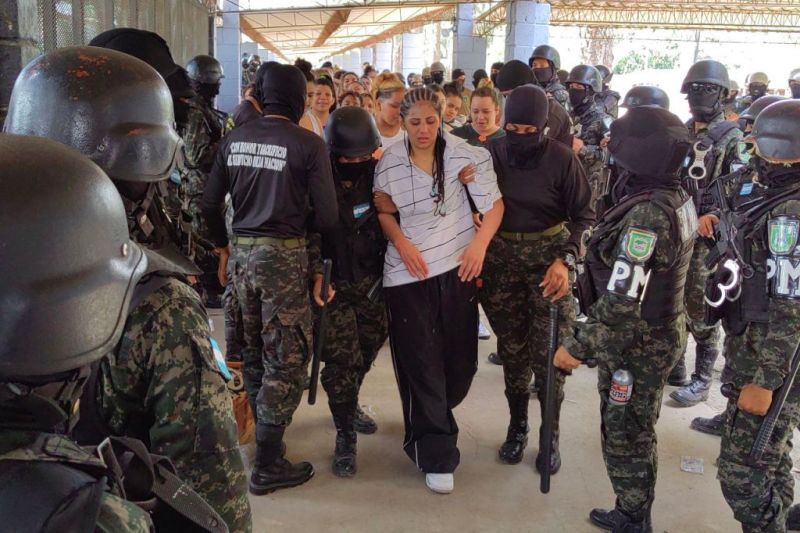
Lima, Peru, Jun 2, 2017 / 04:08 pm (CNA/EWTN News).- Italian priest and exorcist Fr. Sante Babolin said that “the devil, Satan, exists” and that “evil is not an abstraction,” in response to recent comments from Fr. Arturo Sosa, Superior General of the Society of Jesus.
In an interview with the Spanish newspaper El Mundo, Fr. Arturo Sosa said that "we have made symbolic figures, like the devil, to express evil."
“Social conditioning can also represent this figure, since there are people who act [in an evil way] because they are in an environment where it is difficult to act to the contrary,” Fr. Sosa added.
Speaking to ACI Prensa June 2, Fr. Babolin recalled several places in documents and statements of the Church that show the true existence of the devil.
Fr. Babolin recalled the documents of the IV Lateran Ecumenical Council in 1215, state that Christians "firmly believe and simply confess" that God created "from nothing…the spiritual and the corporal, that is, the angelic and the mundane, and then the human. "
"(T)he devil and other demons were created by God good in nature, but they themselves through themselves have become wicked,” notes the text of the council.
Fr. Babolin, known as the “exorcist of Padua,” also recalled two speeches of Pope Paul VI in 1972, which also confirm the existence of the devil "to the faithful, who tend to doubt the existence of Satan…his presence and action. "
On June 29, 1972, Paul VI, alluding to the contemporary situation of the Church, said in his homily that it seemed “the smoke of Satan” entered the temple of God. That same year, on November 15, Paul VI warned that "one of the major needs of the Church" is to defend ourselves "from that evil that we call the Devil."
Fr. Babolin also noted that the Catechism of the Catholic Church teaches that the devil exists in reality, not in the abstract. In the section of the Catechism regarding the "deliver us from evil" petition of the Our Father, in para. 2851, it states that "in this petition, evil is not an abstraction, A person, Satan, the Evil One, the angel who opposes God. The 'devil' (dia-bolos) is the one who 'crosses' in the design of God and his work of salvation fulfilled in Christ."
Fr. Babolin said that the faithful should see the statement of the Fourth Lateran Ecumenical Council, the assertions of Paul VI and what is recorded in the Catechism as "three irrefutable points" about the existence of the devil.
If you value the news and views Catholic World Report provides, please consider donating to support our efforts. Your contribution will help us continue to make CWR available to all readers worldwide for free, without a subscription. Thank you for your generosity!
Click here for more information on donating to CWR. Click here to sign up for our newsletter.





The Jesuit leader most likely does not believe in the devil. He has never actually done anything in which the devil disagrees with. Those who turn from sin and follow Christ and His Church are the ones the devil spends his time harassing. He doesn’t waste time on those who are already his. We know who to believe regarding the devil, that would be Jesus Christ. We know who not to listen to, that would be Jesuits.
By denying the existence of the “devil”, some people feel safer. Having been denied, that is when the devil takes up residence in that poor soul.
Fr. Sosa may feel safer if the “devil” did not exist. But of course, that would be a direct denial of GOD. Pray hard for the Jesuits! They have seemingly embraced the ‘fallen world’!
It’s The New Pentecost!
The council just keeps on giving doesn’t it?
Thank you for a great and very timely posting. Satan surely does his homework. He picks high-profile targets to carry out his insidious attacks on God’s Church.
Fr. Arturo Sosa, Superior General of the Society of Jesus, doesn’t appear to be familiar with the Gospels; Jesus spoke a lot about Satan, and his works. Either he doesn’t believe in what Jesus said, or or, or the mind boggles!
Another priest from the same well-respected order, Fr. James Martin comes to mind here. Oh. God! We have to pray for our priests.
This brings to mind the old saying that “the smartest thing the devil ever did was to convince people that he didn’t exist.”